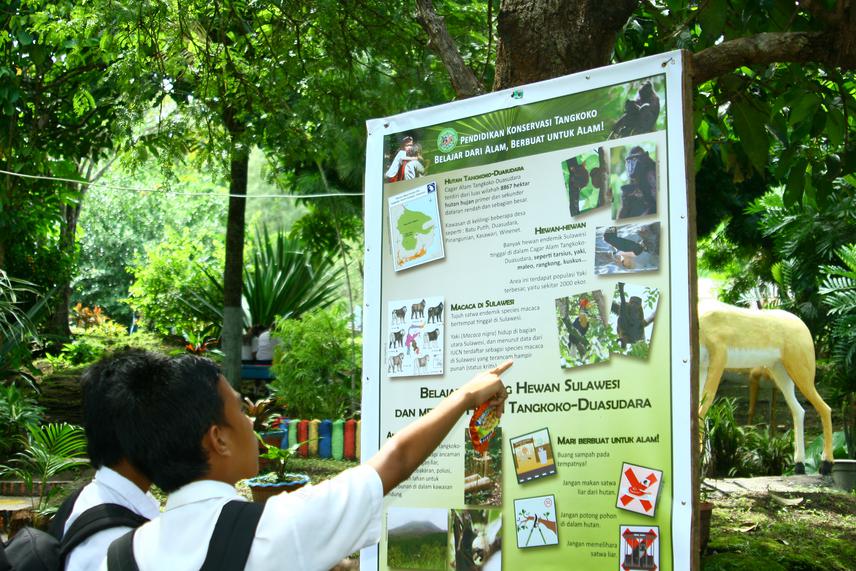Victor Wodi
This project’s aim is to raise local population’s awareness in order to reduce human negative impact on the Tangkoko-Batuangus-Duasudara nature reserves and their wildlife, especially the endemic crested macaques.
Sulawesi is the fourth biggest island of Indonesia. It is part of the Wallacea region, one of the 25 biodiversity hotspots of the world for conservation priorities (Myers et.al, 2000). The Tangkoko-Batuangus-Duasudara nature reserves, situated in North Sulawesi, are unique protected areas home of endemic primate species, noteworthy the crested macaque (Macaca Nigra) whose natural habitat has dramatically declined within the last decades causing a loss of more than 75% of the original population (Palacios et al. in press). Listed as “critically endangered” on the IUCN red list of threatened species since 2010, the biggest population in its original distribution range can nowadays be found in this reserve, where still almost 2000 individuals remain due to ongoing activities of research and tourism (ditto).

Local pupils in Winenet and the poster.
Our project, named Tangkoko Conservation Education, consists in a regular education and conservation program in this area and aims at giving the survival of this primate species in this reserve a long-term perspective through increasing public awareness and education. Since 2011, this programme implements regular schools interventions for primary and high school pupils, public presentations, as well as awareness campaigns(posters, information panels, leaflets) in the surrounding villages in order to increase local people knowledge and positive attitude towards their local environment and wildlife.
We have started to implement our programme in 2011 in one village, Batu Putih, situated next to the Tangkoko forest. Since then we continue to spread our activities in more villages situated around the reserves. For this 2012-2013 school year, we aim to reach 5 villages (Batu Putih, Pinangunian, Duasudara, Kasawari, Winenet) and one bigger town (Sagerat), which will include 10 schools for a total of around 600 pupils.
This project involves several actors such as conservation officers of Pacific Institute, Indonesian, foreign researchers, students and field assistants of the Macaca Nigra Project, and other partners around North Sulawesi (Selamatkan Yaki programme, Tasikoki wildlife rescue centre), tourism stakeholders (eco-guides) and officials such as KSDA nature conservation agency, which either are involved in school interventions or provide us with material. Through these regular and long term education and awareness activities, this project will thus have a positive conservation effect by reducing the negative human impact on the forest and its wildlife, especially the crested macaques, and better protect them in the future.